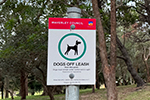- Home Home
-
Residents
Residents
- Waste & recycling Bins, clean-ups and disposing of tricky household items
- Parking Permits, car parks, maps and safety
- Your trees, plants & garden Tree pruning, native gardens and Living Connections
- Neighbourhood issues Report and resolve common issues
- Pets Dog and cat ownership, lost animals and off-leash parks
- Precinct committees Your local connection to Council
- Waverley LGA Maps Maps of the environment, planning zones and more
- Payments Pay for rates, certificates, permits and licences
-
Community
Community
- Children, youth & family services Early education, day care, support & resources
- Awards & grants Local Hero Awards, Garden Awards, Small Grants
- Get involved in your community Volunteering, creating connections, gardening
- Over 60s Services, activities, Mill Hill 60+ program
- Housing & homelessness Affordable housing, programs & support services
- Cultural diversity & inclusion Multiculturalism, language help, citizenship
- Aboriginal & Torres Strait Islander people Commitment to Reconciliation, plans & policies
- Disability inclusion Support services, access & inclusion projects
-
Business
Business
- Resources for Business Events, grants and support
- Tourism Home to Australia's most famous beach.
- Sponsorship Support local events
- Procurement Submitting tenders & expressions of interest to Council
- Commercial waste & recycling services Tailored waste services for business
- Mobile vending Waverley has limited mobile vending licenses
- Footpath Seating Permits Submit your application
- Hello Bondi Council’s website to help visitors enjoy their stay
-
Recreation
Recreation
- Events Browse performances, exhibits and experiences
- Places of interest Historic buildings, markets, dining and Bondi Pavilion
- School Holiday Programs Fun-filled activities, workshops and events.
- Beaches & coast Beach information, safety, pool cleaning schedules
- Parks & reserves Location, public facilities and accessibility
- Arts & culture Artistic vision, creative programs, spaces and awards
- Venue & sport facilities hire Book indoor venues and sport facilities in Waverley
- Use of public spaces Events, commercial activations, filming etc
-
Environment
Environment
- Council leadership on environmental action Research, strategies and Council programs
- Climate resilience and reducing emissions Switch to electric, go solar and grants for apartments
- Water and the coast Keep beaches clean, save water and enjoy the sea
- Towards zero waste Reduce waste at home and at work
- Public tree management & urban greening Street Tree Masterplan and planting zones
- Native vegetation and animal habitat Join Bushcare and enjoy Waverley’s natural spaces
- Transport Council policy, bike and car share, electric vehicles
- Second Nature Council’s environmental news and events hub
-
Planning & Development
Planning & Development
- Development Applications The DA process, key documents & community consultation
- DA Tracking Tool Search a Development Application by number or date
- Application forms & certificates incl Planning, Rating, Construction and Occupation
- Waverley Local Planning Panel (WLPP) DA determination panel
- Compliance and regulations incl fire safety, food, pools and pollution
- Heritage incl Heritage Conservation Areas and fact sheets
- Urban planning and design Making Waverley a great place to live and work
- Major projects Council-delivered buildings, streets and parks
-
Council
Council
- Organisation structure Four directorates serve the community
- Mayor & councillors Your Mayor, Councillors, wards and contact details
- Council & committee meetings Dates, agendas and minutes of meetings of Council
- Advisory committees Advisory Committees of Council
- Policies, plans, strategies and reports Council's vision and delivery
- Jobs Current vacancies and working at Waverley
- Access to information Gaining access to publicly available information
- Payments Pay for rates, certificates, permits and licences
- Waste & recycling
- Parking
- Your trees, plants & garden
- Neighbourhood issues
- Pets
- Precinct committees
- Waverley LGA Maps
- Payments
Pets
Councils are the local authority for the NSW Companion Animals Act, which in practice means Waverley Council assists residents comply with the regulation in relation to dog and cat ownership. Our Council Rangers also enforce parts of the Act in the community.
Browse the sections below for information related to dog and cat ownership in Waverley. The NSW Government also has extensive information available.
Council Rangers have authorised powers for the purposes of enforcing the Companion Animals Act. These include being able to:
- Request the full name and residential address of an animal’s owner;
- Retrieve identification information from a companion animal i.e. scan an animal’s microchip.
Council Rangers can:
- Issue a fine for not complying with the Act;
- Issue a Notice, Order or Declaration for Nuisance, Dangerous, Menacing or Restricted dogs;
- Seize dogs or cats in certain circumstances.
Please note, Waverley Council’s role in administering the NSW Companion Animals Act relates to dogs and cats only.
-

Pet registration & permits
All dogs and cats are required to be microchipped and registered, with some animals also requiring an annual permit.
-

Lost, stray or abused animals
Notify Council if you have lost your cat or dog, and request Council assistance if there is a stray dog in your neighbourhood. Animal abuse should be reported to one of the designated animal welfare organisations.
-

Restricted, dangerous or nuisance animals
Certain breeds of dogs are classified as restricted, and any dog deemed dangerous must be kept under special living conditions. Notify Council if a dog is not under effective control from its owner and/or is causing a persistent nuisance through excessive barking or property damage.
-

Off-leash parks
There are both permanent and timed off-leash green spaces in the local area for dogs to enjoy.
-

Local pet services
A directory of local animal welfare, vet and shelter organisations.
